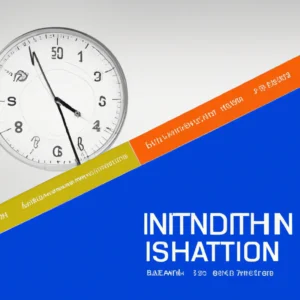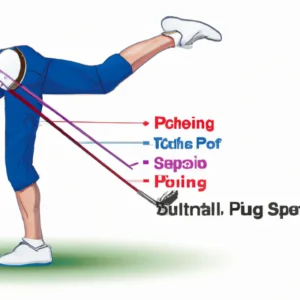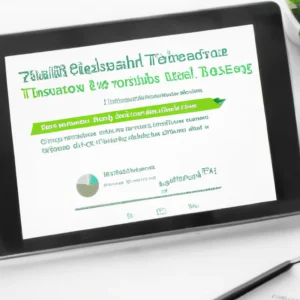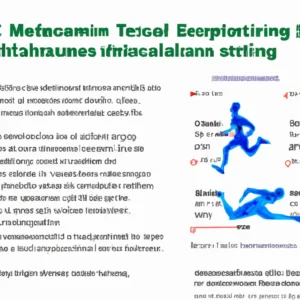**”Heart Rate Variability and Stress Management: Exploring the Connection Between HRV Monitoring and Emotional Resilience”**
# Heart Rate Variability and Stress Management: Exploring the Connection Between HRV Monitoring and Emotional Resilience
In today’s fast-paced world, stress has become a common part of our daily lives. Whether it’s from work, personal relationships, or even the constant barrage of digital notifications, managing stress effectively is crucial for maintaining overall health. One significant yet often overlooked indicator of our body’s response to stress is Heart Rate Variability (HRV). This blog post will delve into the connection between HRV monitoring and emotional resilience, providing insights into how we can leverage this knowledge for better stress management.
## Understanding Heart Rate Variability (HRV)
### What is HRV?
Heart Rate Variability refers to the variation in time intervals between heartbeats. It is a measure of the autonomic nervous system’s regulation of the heart, specifically how well the body can adapt to stress and recover from it. A higher HRV indicates greater variability between heartbeats and is generally associated with a healthier cardiovascular system and a more resilient emotional state. Conversely, a lower HRV can signal stress, fatigue, or potential health issues.
### Why is HRV Important?
HRV serves as a valuable biomarker for understanding our stress levels and emotional health. It reflects the balance between the sympathetic nervous system, which prepares the body for stress (“fight or flight”), and the parasympathetic nervous system, which promotes relaxation and recovery (“rest and digest”). By monitoring HRV, individuals can gain insights into their stress responses and emotional resilience.
## The Connection Between HRV and Stress Management
### Emotional Resilience
Emotional resilience is the ability to adapt to stressful situations and bounce back from adversity. High HRV is often correlated with greater emotional resilience, suggesting that individuals with more adaptable heart rate patterns can better handle stress. By monitoring HRV, one can identify patterns and triggers, allowing for proactive stress management strategies.
### Stress Response
When we experience stress, our sympathetic nervous system activates, leading to a decreased HRV as the body prepares for a perceived threat. Monitoring HRV can provide real-time feedback on our stress levels, enabling us to implement coping strategies like deep breathing or mindfulness before stress spirals out of control.
## Nutrition Tips for Enhancing HRV
### 1. Incorporate Omega-3 Fatty Acids
Omega-3 fatty acids, found in fatty fish, walnuts, and flaxseeds, have been shown to improve cardiovascular health and may enhance HRV. Including these foods in your diet can help reduce inflammation and support heart function.
### 2. Hydrate Properly
Dehydration can negatively impact heart function and HRV. Aim to drink sufficient water throughout the day, and consider hydrating foods like cucumbers, watermelon, and oranges.
### 3. Limit Processed Foods
Processed foods high in sugar and unhealthy fats can lead to inflammation and stress on the body, negatively affecting HRV. Focus on whole, nutrient-dense foods to support your overall health.
## Exercise Advice for Boosting HRV
### 1. Incorporate Aerobic Exercise
Regular aerobic exercise, such as walking, jogging, or cycling, can significantly improve HRV. Aim for at least 150 minutes of moderate aerobic activity each week to strengthen your heart and improve your body’s stress response.
### 2. Try Yoga or Tai Chi
Mind-body practices like yoga and tai chi promote relaxation and mindfulness, which can enhance HRV. These activities not only improve physical fitness but also foster emotional resilience through stress reduction.
### 3. Include Strength Training
While aerobic exercise is essential, strength training can also contribute to improved HRV. Aim for at least two sessions per week, focusing on major muscle groups to enhance overall fitness.
## Health Benefits of Monitoring HRV
### 1. Improved Stress Management
By tracking HRV, individuals can gain insights into their stress levels and implement coping strategies more effectively. This proactive approach can lead to better stress management overall.
### 2. Enhanced Recovery
Higher HRV is associated with better recovery after physical exertion, making it an essential tool for athletes and fitness enthusiasts. Monitoring HRV can help determine optimal training loads and recovery periods.
### 3. Better Sleep Quality
HRV is linked to sleep quality, with higher variability often correlating with deeper, more restorative sleep. By monitoring HRV, individuals can identify lifestyle factors that may be affecting their sleep and adjust accordingly.
## Conclusion
Heart Rate Variability is more than just a statistic; it serves as a window into our body’s response to stress and our emotional resilience. By monitoring HRV, we can gain valuable insights into our stress levels, enabling us to implement effective stress management strategies. Coupling HRV monitoring with a balanced diet, regular exercise, and mindfulness practices can lead to improved emotional resilience and overall well-being. As we navigate the complexities of modern life, understanding and managing our HRV may be one of the most effective tools we have for fostering a healthier, more resilient self.















Post Comment